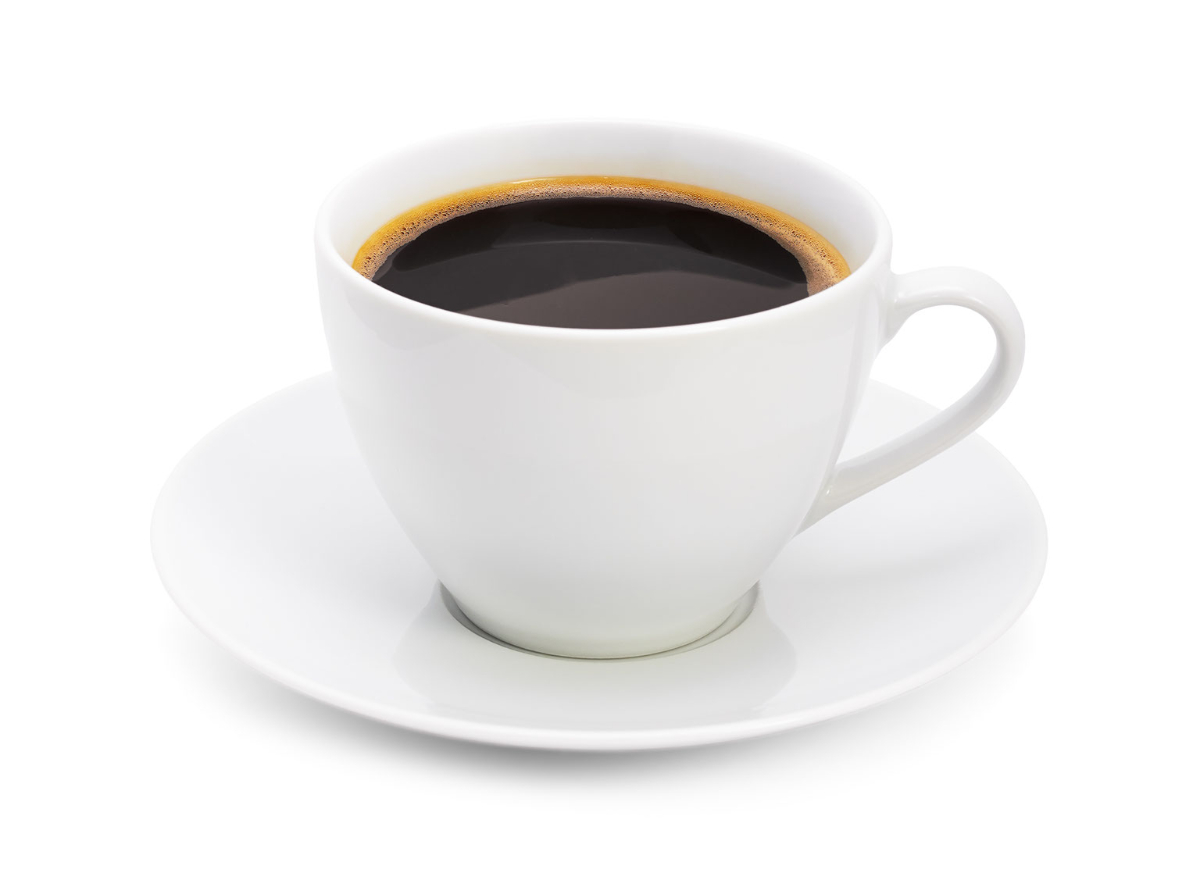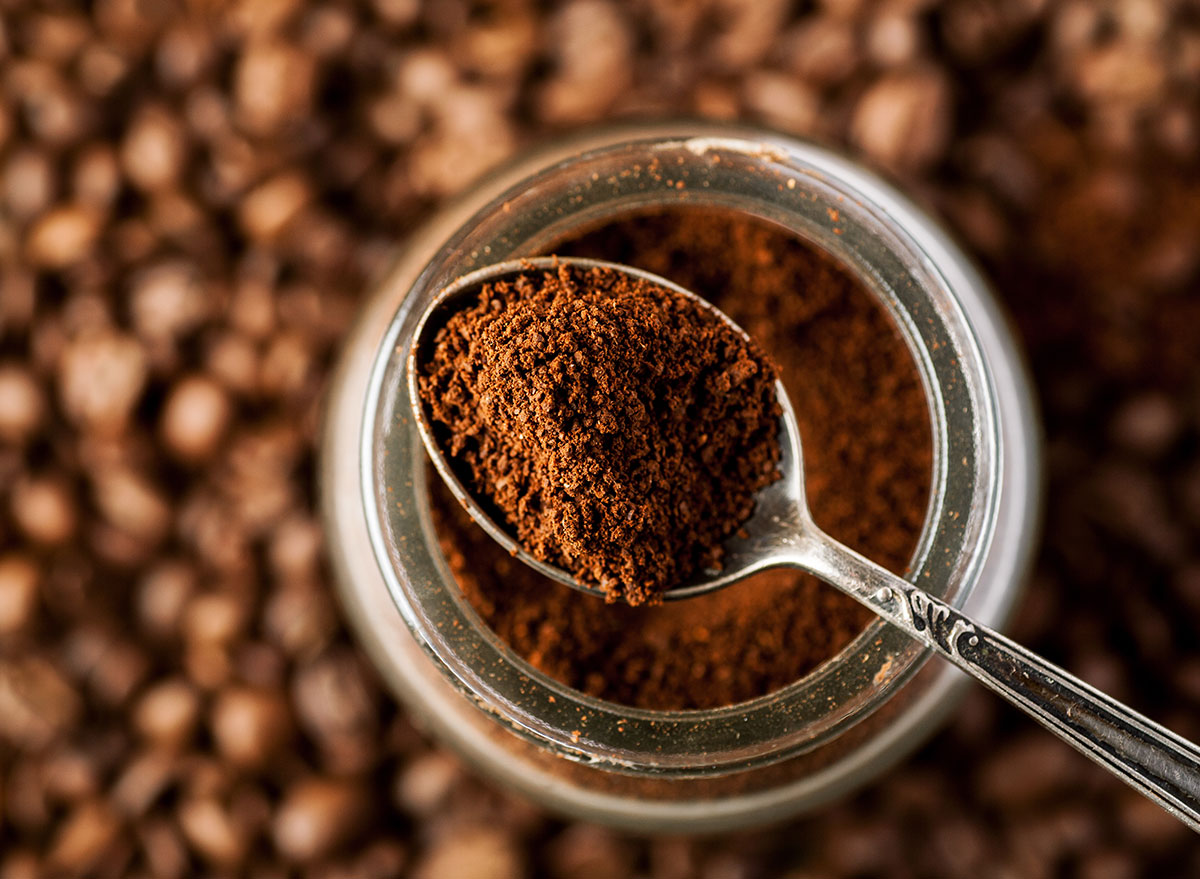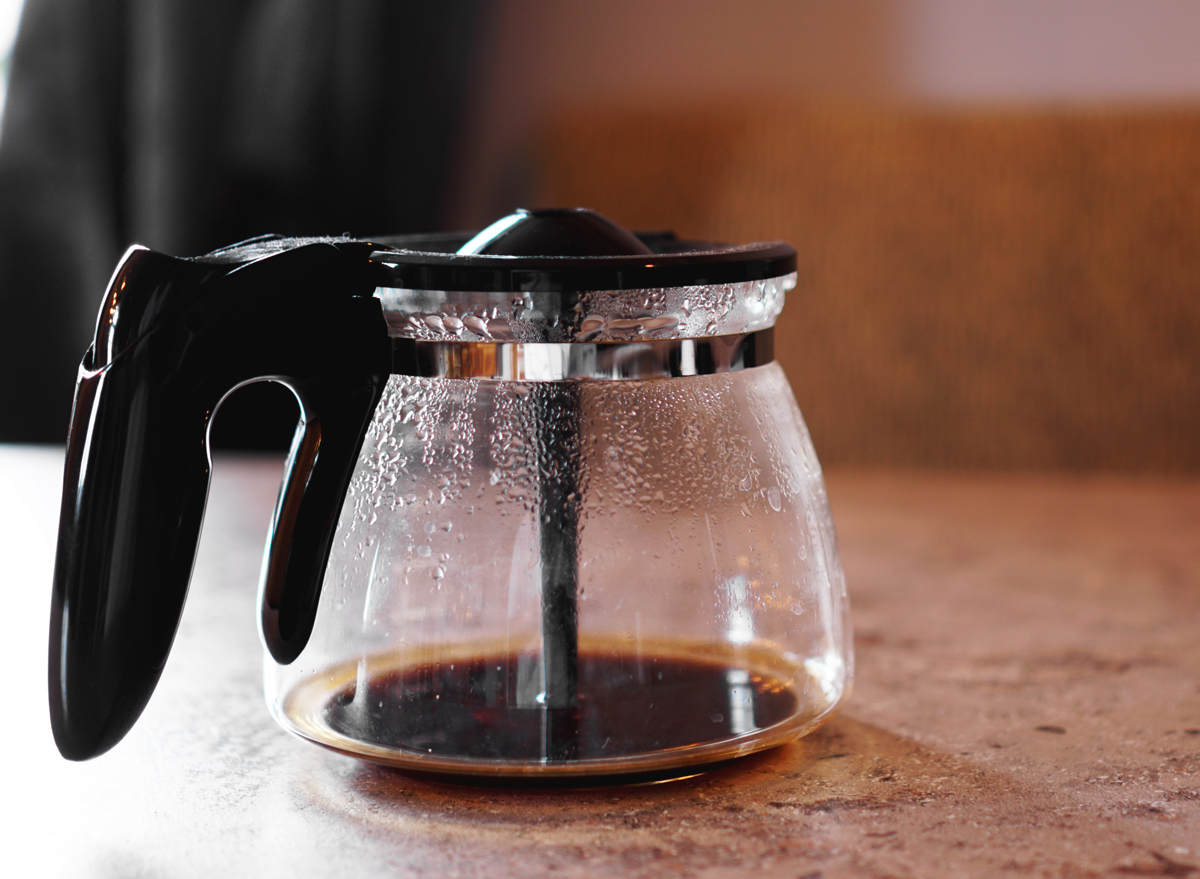One Major Side Effect Decaf Coffee Has on Your Heart, New Study Says

You might think caffeinated coffee is not good for your heart health, thanks to effects like the increase in heart rate and higher blood pressure. However, a team of researchers for the American Heart Association recently stirred up some surprising findings about the effects of coffee on the heart—including that decaf coffee leads to a higher risk of one serious heart condition.
The American Heart Association recently backed a study that closely examined previously unidentified factors that lead to death from heart disease. David P. Kao, M.D., lead author for the study, pointed out that "among the most well-known heart disease risk factors" are age, high blood pressure, and smoking. However, said co-author Linda Van Horn, Ph.D., R.D., and member of the American Heart Association's Nutrition Committee, findings about the effect of diet on heart disease "remain relatively limited due to inconsistencies in diet assessment and analytical methodologies, as well as inherent problems with self-reported dietary intake."
The researchers looked back at longitudinal data that had been taken on more than 21,000 participants in three past studies, including the original cohort of the Framingham Heart Study—the famous 1960s study that uncovered the health dangers of smoking.
At the current study's conclusion, said Kao: "The association between caffeine and heart failure risk reduction was surprising. Coffee and caffeine are often considered by the general population to be 'bad' for the heart because people associate them with palpitations, high blood pressure, etc."
However, he continued: "The consistent relationship between increasing caffeine consumption and decreasing heart failure risk turns that assumption on its head." Read on to see what the researchers found as the intriguing effects they say coffee on the heart. (Also don't miss These 5 Foods May Naturally Lower Your Anxiety, New Study Says.)
Decaffeinated coffee was associated with higher heart failure risk.

Analyzing data on the habits of participants who'd experienced heart failure versus those who didn't, from the Framingham Heart Study the researchers found that drinking decaffeinated coffee appeared to significantly increase the risk of heart failure. (Heart failure being defined as the heart's weakness in pumping blood.) They also concluded that caffeine "from any source appeared to be associated with decreased heart failure risk, and caffeine was at least part of the reason for the apparent benefit from drinking more coffee."
(However, it should be noted that in one of the three past studies they referenced, "there was no increase or decrease in risk of heart failure associated with drinking decaffeinated coffee," they said, even though Kao stated their ultimate findings may present some reason to think differently about former beliefs related to caffeine.)
Regular coffee seemed to lower heart failure risk.

After reviewing all three past studies, the researchers found that individuals who reported consuming one or more cups of caffeinated coffee saw a lower long-term risk of heart failure.
Topping off a cup was a good thing.

The researchers found that in the Framingham Heart study and the Cardiovascular Health study—two of the three past projects the current study looked at—the risk of heart failure over the course of decades decreased by five to 12% for every cup of coffee per day, compared with no coffee consumption.
RELATED: Fat in This Part of the Body Could Wreck Your Heart
Two cups may be the magic number.

In the third study, known as the National Institute of Health's Atherosclerosis Risk in Communities Study, the risk for heart failure did not change for participants who drank between zero or one cup of coffee per day. However, those who drank two cups a day saw around a 30% lower risk.
Sign up for the Eat This, Not That! newsletter for the daily nutrition news you can use, and keep reading:








